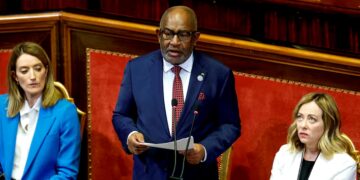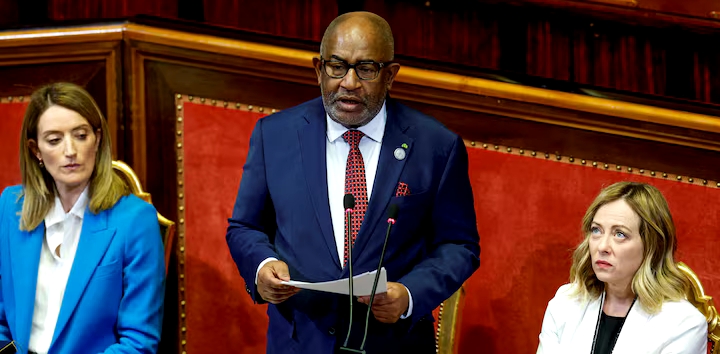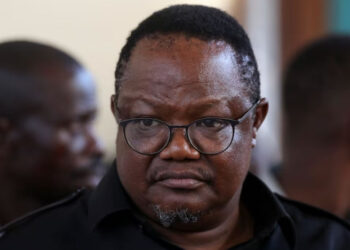By Enyichukwu Enemanna
Comoros President Azali Assoumani has denied allegations that he is planning to pick his son as his successor, contrasting an earlier statement in which he said his son would replace him.
While addressing his supporters on Thursday on the island of Moheli, Assoumani said, “I will place my son to replace me as head of the state and the party.”
However, in a statement posted on its Facebook page late on Friday, the president’s office said that did not mean he intended to hand over power to his son, Nour El Fath, when he leaves office in 2029.
“The government wishes to emphasise that at no time did President Azali speak of a possible succession of his son, Nour El Fath, as the head of the state,” it said.
“He instead spoke of ‘a child’ who would succeed him, knowing that it is customary in the Comoros to describe every citizen as ‘a child’, without necessarily speaking of one’s own offspring.”
The statement noted that the President had previously rejected the idea of “family succession” and that his successor would have to come from Anjouan, one of Comoros’ three main islands.
Assoumani, who came to power in 1999 through a coup, has won four elections in the Indian Ocean archipelago nation since 2002.
Comoros’ constitution allows for the rotation of the presidency among the three islands every 10 years.
El Fath would therefore not be eligible to replace his father at the end of his presidential term in 2029 without a constitutional amendment.
Assoumani won a disputed presidential poll in 2022, which the opposition said was rigged in favour of the sitting government.
Earlier this month, the ruling party also decisively won parliamentary elections, although opposition parties either boycotted the vote or rejected the results, claiming fraud.
The population of 800,000 has witnessed about 20 coups or attempted coups since independence from France in 1975.
In August, the President appointed his son as coordinator of government affairs, granting him sweeping powers that allow him to intervene at every stage of decision-making in government.
His role includes evaluating ministers and intervening at all stages of the execution of government decisions.


































